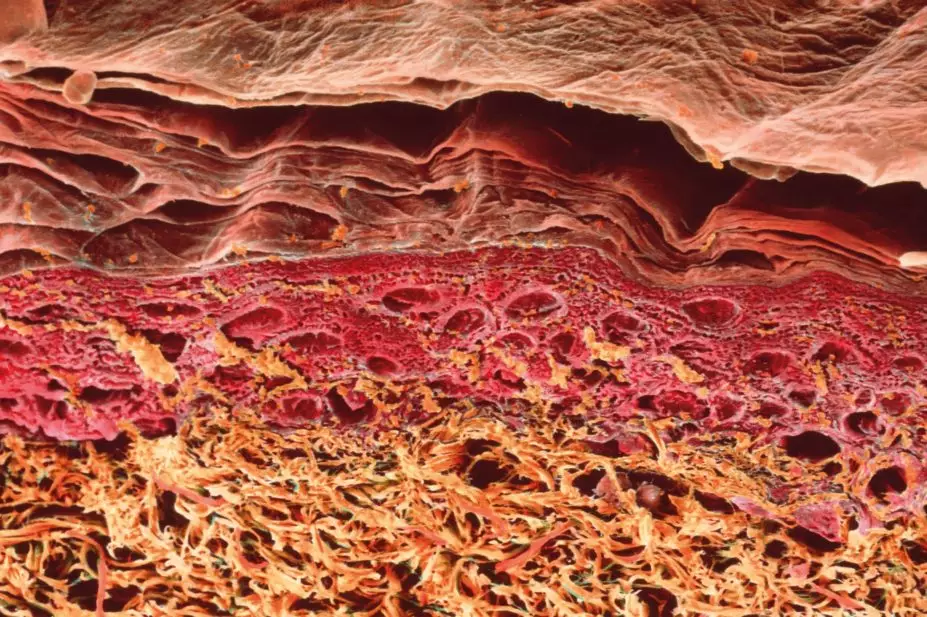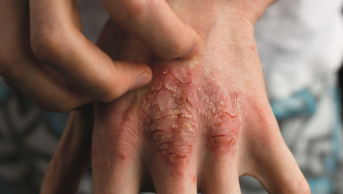
Steve Gschmeissner / Science Photo Library
Atopic eczema (AE) is characterised by skin barrier and immune dysfunction and scientists have shown that a lack of the key epidermal barrier protein, filaggrin (FLG), in the skin is strongly linked to its development.
To build on this, researchers at Newcastle University modified the epidermis of a human model system to become filaggrin-deficient in order to mimic the situation found in patients with AE.
By doing this they were able to show for the first time, that a loss of FLG in the absence of inflammation is sufficient to alter the expression level of proteins, such as Kallikrein-7, Cyclophilin A and Cofilin-1, relevant to the pathogenesis of AE.
These proteins are known to have a role in regulating inflammation, protease activity, cell structure and stress.
The findings, published in the Journal of Allergy and Clinical Immunology
[1]
(online, 4 May 2017), provide a new insight into the mechanisms involved in AE and suggest targets for drug development.
References
[1] Elias M, Long H, Newman C et al. Proteomic analysis of filaggrin deficiency identifies molecular signatures characteristic of atopic eczema. J Allergy Clin Immunol 2017. doi: 10.1016/j.jaci.2017.01.039


